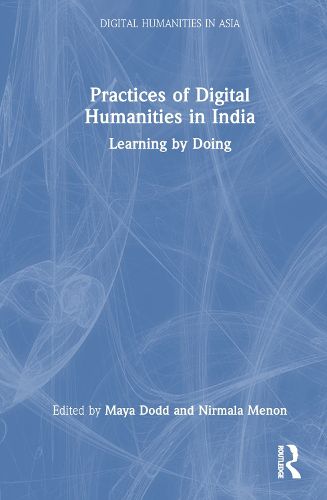Readings Newsletter
Become a Readings Member to make your shopping experience even easier.
Sign in or sign up for free!
You’re not far away from qualifying for FREE standard shipping within Australia
You’ve qualified for FREE standard shipping within Australia
The cart is loading…






This book represents examples of innovations in digital humanities (DH) efforts across India while theorizing disparate challenges and its negotiations. It examines DH projects that have spanned private and public efforts, institutionally sanctioned lab-work, and crowd-sourced programmes of public significance and shows how collectively they demonstrate the potential paths of DH in India.
The essays in the volume highlight the two fundamental challenges for DH - acts of curation of new scales and the creation of platforms that can assist in the collation and analysis of these digital archives - and changes in learning behaviour. They examine the transformation of the university, and the opening up of new relationships between knowledge and audience in concomitant spaces of scholarship such as libraries, archives, and museums. The volume brings to the fore citizen efforts to document, record, and preserve as well as create new avenues of study and forge networks of scholarship that look very different from those of traditional academia. It also foregrounds the challenges of location and addresses the questions of how DH should be taught in India and how to build digital infrastructures.
A go-to guide for DH efforts in India, this book will be an essential text for courses on digital humanities, library and information sciences, and the future of experiential learning.
$9.00 standard shipping within Australia
FREE standard shipping within Australia for orders over $100.00
Express & International shipping calculated at checkout
This book represents examples of innovations in digital humanities (DH) efforts across India while theorizing disparate challenges and its negotiations. It examines DH projects that have spanned private and public efforts, institutionally sanctioned lab-work, and crowd-sourced programmes of public significance and shows how collectively they demonstrate the potential paths of DH in India.
The essays in the volume highlight the two fundamental challenges for DH - acts of curation of new scales and the creation of platforms that can assist in the collation and analysis of these digital archives - and changes in learning behaviour. They examine the transformation of the university, and the opening up of new relationships between knowledge and audience in concomitant spaces of scholarship such as libraries, archives, and museums. The volume brings to the fore citizen efforts to document, record, and preserve as well as create new avenues of study and forge networks of scholarship that look very different from those of traditional academia. It also foregrounds the challenges of location and addresses the questions of how DH should be taught in India and how to build digital infrastructures.
A go-to guide for DH efforts in India, this book will be an essential text for courses on digital humanities, library and information sciences, and the future of experiential learning.